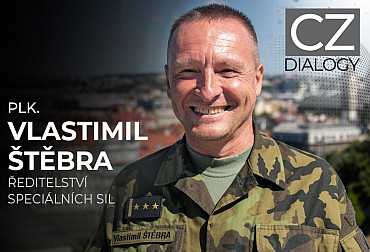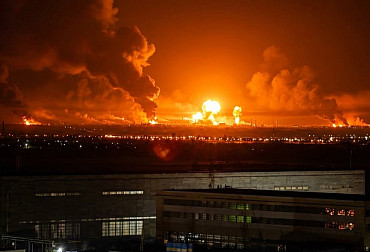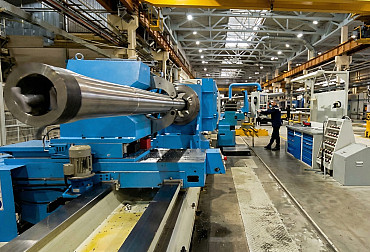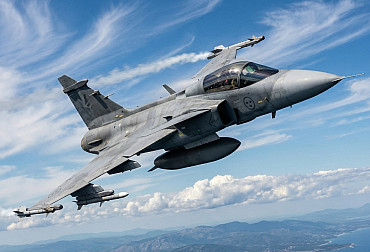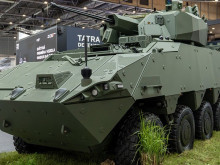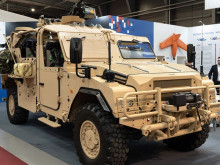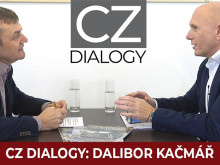Tomáš Kopečný: Exuberance is a natural feature of Russian thinking
The Czech Republic is one of the European leaders when it comes to helping Ukraine defend itself. Moreover, it has now succeeded in raising money to start buying large-calibre ammunition for Ukraine, which was announced at the recent Our Security Is Not a Given conference by Czech President Petr Pavel together with Prime Minister Petr Fiala and Defence Minister Jana Černochová. However, assistance to the invaded country also has a civilian dimension in the form of restoring the local industry and infrastructure. The Czech Republic is also doing well in this area and trade and industrial cooperation between the Czech Republic and Ukraine is growing. For example, in February this year, the largest Czech business delegation since the beginning of the war visited the cities of Kiev, Dnipro and Kryvyi Rih, led by the Government Commissioner for Reconstruction of Ukraine, Tomáš Kopečný. He also accepted our invitation to our discussion programme CZ DIALOGUES.
Video: Interview with Tomáš Kopečný, Government Commissioner for Reconstruction of Ukraine / CZ DEFENCE
According to Kopecny, exports to Ukraine in the civilian sector are growing steadily and the export of military materials to date is unprecedented. "We are talking about the fact that in two years military material worth over 70 billion crowns has been delivered. In total, licenses worth 140 billion crowns have been issued," the government commissioner said, adding that in comparison, previous records in the export of military materials to the world were no more than 20 billion crowns. In the same vein, the situation in the civilian sector, which operates on a similar principle - pilot projects are conducted, studies are prepared and then funds are sought for implementation abroad.
The war in Ukraine is now in its third year, and it would seem that it is still premature to consider the reconstruction of the invaded country. However, according to Tomáš Kopečný, this is similar to the military aid that was being considered before Russia invaded Ukraine, and we need to think in a similar way about civilian aid and the reconstruction of infrastructure. "The hundreds of billions of euros needed for the reconstruction of Ukraine are nowhere to be found. They are not in the Ukrainian budget, they are certainly not in the Czech budget, they are not even in the budgets of the richest countries. At the moment, we are talking about the rapid restoration of key things that are actually a supporting part of the war effort or the effort to maintain our own freedom and sovereignty. That is why we are focusing a lot on health care, helping tens of thousands of wounded soldiers through various activities," says Tomáš Kopečný.
This is what the fourth Czech business mission to Ukraine in the last year was about, among other things, when the delegation visited hospitals, where the development was quite evident. "When I was there the first time, there were one or two moderately equipped rooms. The operating theatre is exactly the Czech commodity. Today there are many more. When I walked around there, I met young guys there after an injury. One didn't have one arm, one didn't have one leg and one arm. One had one arm, one leg. Czech doctors helped them with their rehabilitation and return to life at the centre in the hospital in Vinnica, which is called Super Humans," says Tomáš Kopečný, adding that after a year the results of their work are clearly visible. "We have already managed to send a team of doctors there twice, which, by the way, was also very instructive for them, as I had feedback. They also gained experience from traumas there, which fortunately we cannot see here," Kopečný compares, pointing to the primary goal of the aid, which is to enable injured Ukrainian soldiers, as well as civilians, to return to normal life as best as possible, despite the fact that they have lost an arm or a leg.
However, Czech aid is not only in the field of health care; results can also be seen in the field of energy and water purification. In the area of water purification, the Czech Republic is helping most in restoring the supply of drinking water in the New Kachovka area, because there are still hundreds of thousands of people there today without sufficient access to drinking water.
The destruction of the Kakhovka dam was one of the topics of our previous interview with Tomáš Kopečný, and according to the Government Commissioner for the Reconstruction of Ukraine, the situation in the area is still very difficult. Thanks to international organisations like UNICEF and others, at least a major health outbreak has been prevented. "We have managed to set up projects to clean up the now very limited water sources that flow through the towns and villages. Today, those sources are much smaller, so there is less water. There is more bacteria and so it needs to be treated and purified to make it usable for the population. This is something we have been working on," says Tomáš Kopečný.
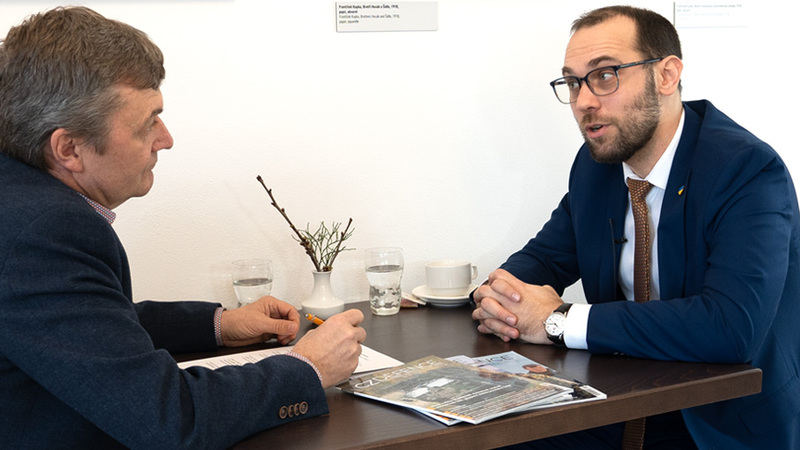
In such a form of assistance, it is always necessary to identify a specific need, which is specified through communication with the local population and local government. Furthermore, it is important to determine whether the technology that is available in the Czech Republic, for example, is applicable. "The moment you pair the demand with the Czech offer, the hardest part is finding the funding," Kopečný points out. The Czech budget for this aid is roughly 20 million euros, or CZK 500 million. Of this, the Czech Republic sends contributions to international organisations. We pay for the trips of our doctors, we pay contributions for demining, for example. "This means that the whole package of money is not primarily for the projects themselves. The funds for specific projects are enough to prepare studies or humanitarian assistance. International resources are important for implementation," explains the government commissioner for Ukraine's reconstruction. Fortunately, these have already been found. "It took x months of negotiation, reconciling our and Taiwanese, our and American legal systems. With these two partners, we have already managed to successfully implement the first projects, which, by the way, amount to more than 150% of what the Czech Republic gives. In other words, the Czech Republic has put in CZK 500 million. And these two countries gave CZK 750 million for Czech goods to Ukraine," says Tomáš Kopečný.
As the current development shows, there is a more significant increase in aid to Ukraine also in arms supplies, especially ammunition. Here, too, the Czech Republic is playing a very active role. "Many of us probably remember the endless hesitation of both the German Chancellor and the French President. The endless conversations with the Russian president, which they were so much blamed for. And even a year ago, we almost never heard from the mouths of German or French leaders that Ukraine had to win. That was a theme that was held from the beginning by the so-called Eastern Bloc or Central Europe minus Slovakia, Hungary. From my point of view, what is really key is that after a year or three quarters of a year, when we communicated very intensively with our German partners, the German government, parliamentarians and industry that we wanted them to be active, that we wanted them to take responsibility for the defence of Europe, they heard it without exaggeration," Tomáš Kopečný sums up.
In the context of the Russian-Ukrainian conflict, then, there are questions that might have been answered in history. For example, what is Russia really after in a war with Ukraine? Is it grain, mineral wealth, territorial gain? According to Tomáš Kopečný, referring to Russian history, it is a quest for empire. According to the government commissioner for the reconstruction of Ukraine, without an interest in history it is impossible to understand what the Russian leadership, and especially the Russian President, is talking about. This was, in fact, fully demonstrated during the interview of the American TV presenter Tucker Carlson with Vladimir Putin. "The rambling monologue of the Russian president was all about history. I think what Russia is after is that imperial history," Kopecny recalls, adding: " Russia sees the collapse of the Soviet Union as its great humiliation. But it's not just about that humiliation. It's not just that they have lost some status in international affairs, it's about the territories. The expansionism is a natural feature of the Russian mindset, and the fact that they will actually destroy everything there today and not be able to use it is actually secondary. They will then come there, rebuild it, make some nice exhibition about how great it is to live in Mariupol. But first of all, they will apply the Stalinist population transfers there. They will push the population into Mariupol and all those newly conquered territories, especially from that Central Asian part of their territory, so that there is no misunderstanding of why they are there. This is what was happening in the Baltics and this is what is already happening in the territory of occupied Ukraine."
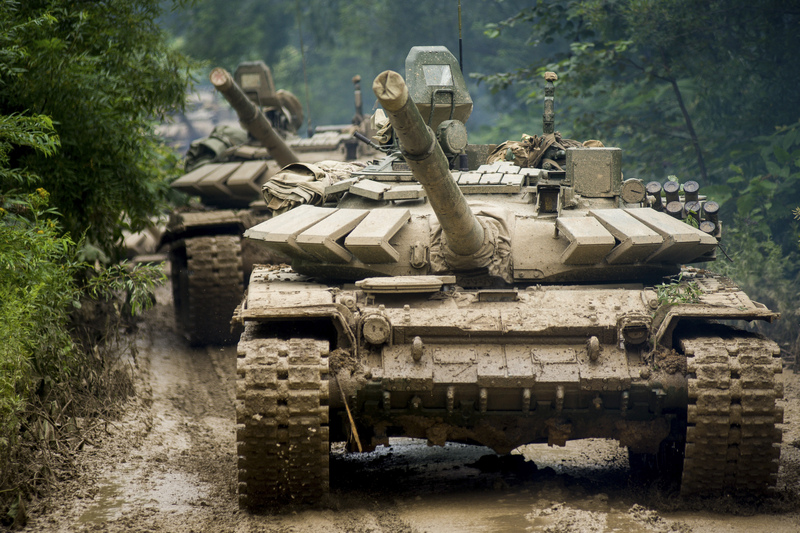
We also talked with the Government Commissioner for Reconstruction of Ukraine, Tomáš Kopečný, about cooperation not only between Czech arms companies and their Ukrainian counterparts, etc. If you want to learn more, listen to the full interview at the beginning of this article.











